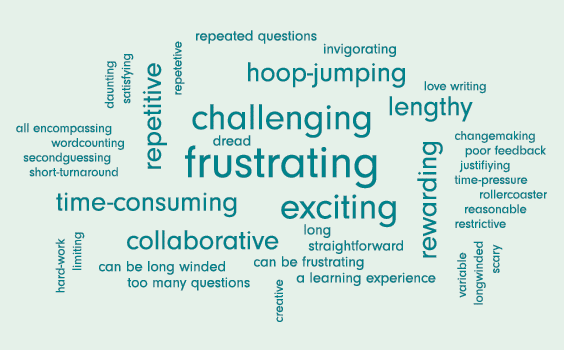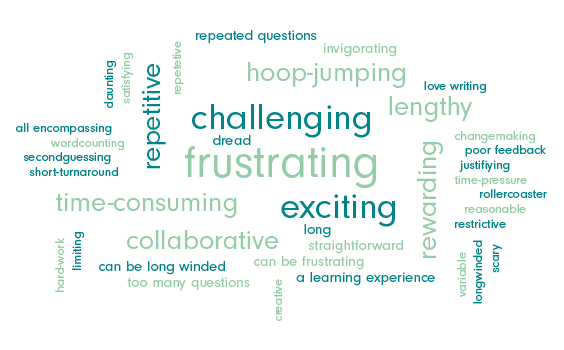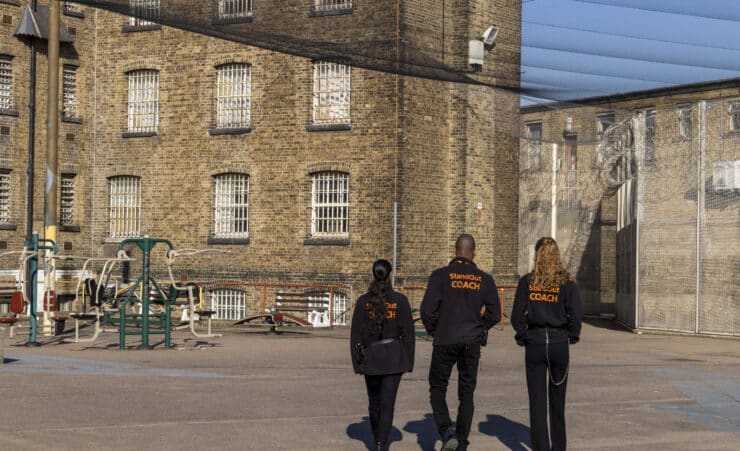
This is what applying for funding feels like
#FlexibleFunders

Introduction from IVAR
Much has been written about how funders acted differently in the context of the pandemic. Funded organisations have celebrated lighter touch processes, faster turnaround of grant decisions, recognition of uncertainty and the need to adapt – even the topsy-turvy scenario of being offered funding without asking for it. There is a strong desire from all concerned to retain these practical changes. However, alongside this and with much less attention, grant applicants are still carrying the burden of rejection after rejection, often receiving little or no feedback, unable to connect with funders as they would like. The experience of applying for funding still has some way to go to ensure it’s a mutually respectful process operating on a more level playing field.
This is what we heard when we asked 22 charities about their experiences of applying for funding, as part of our open and trusting grant-making initiative. Whilst almost everyone recognised the positive changes through Covid-19, many still talked about the emotional rollercoaster generated by unsuccessful applications: the stress and self-doubt, the fear and inability to understand what is really needed for success. This blog, in the words of grant applicants themselves, offers an insight into these feelings. We ended by asking ‘what would make it feel better’? Some of the answers are surprisingly simple and return to the concepts of respectful, open and trusting grant-making.
‘Exciting’, ‘rewarding’, ‘creative’
As grant applicants, we are incredibly passionate about the work we do. Writing grant applications is part of the fun and challenge of our job; successfully applying for funding helps our organisations to fulfil their mission and support the communities we serve.
However, for every successful application we make, there are many more that have been rejected.
Dealing with rejection
We know funders receive large volumes of applications and have to make tough choices but dealing with rejection can be immensely disappointing. We feel that we’re letting our organisations down, as well as our team and colleagues. You can feel responsible for the success of the entire organisation. It’s embarrassing having to tell colleagues ‘we didn’t get it’ – people’s jobs and our work for beneficiaries is at stake.
One of the most frustrating things is that you rarely get any communication from funders. To put so much work into an application that you get really excited about, but not receive any feedback, is incredibly difficult. It makes you question your skills and whether that funder will ever be right for you.
Maintaining resilience and wellbeing
Learning how to manage rejection and build resilience is a key part of how we persevere. Having a stable team and support network is vital in helping you manage the emotions that come up when applying for funding.
It’s not always as simple as picking up the phone to ask why an application didn’t make it through. The power dynamics make that hard, and you don’t always know the rules. It’s like that feeling you get as a teenager, plucking up the courage to call someone you wanted to ask out. You’d dial the number but hang up at the last minute as you were scared they’d say no.
Things can change because things have changed during this pandemic
We have seen greater flexibility from funders, with offers of emergency or unrestricted funding, and relationships more likely to be characterised by trust and open communication.
Having more positive relationships has allowed us to be more honest about our struggles, and clearer about the support we need.
However, with things beginning to open up again and emergency funding coming to an end, we are still in a period of deep uncertainty. While we are grateful that funders showed so much compassion and flexibility during the pandemic, we are fearful that this behaviour won’t continue – things may be slowly going to back normal, but we’re not out of the woods yet!
What would make it feel better?
Applying for funding needs to be a mutually beneficial experience but at the moment it often feels one-sided. Current application and assessment processes can bring up feelings of dejection and failure, but in the best cases they can be incredibly rewarding. There will be no ‘one size fits all’ approach – what suits some organisations may not suit others – but we know that open and honest communication is crucial whatever the process looks like.
We’d like to see more of a balance between the needs of charities applying and the funders receiving applications – so that there is less of a burden on either.
Here are five things that funders can do to help:
- Continue the flexible, open and trusting funding practices that many adopted during the pandemic – clear criteria, core or unrestricted funding and light-touch forms all make a big difference.
- Be more transparent with eligibility criteria and share decision-making processes.
- Consider different requirements depending on the size of grant. For example, be open to different types of applications (e.g. video applications), use publicly held information (e.g. financial information from the charity commission) and only ask relevant questions.
- Ringfence funding to support specific groups or communities (e.g. small charities, community-led groups, ethnically diverse charities). Smaller organisations and those that support marginalised communities are often competing with larger organisations that have more resource and a paid fundraising team. Ringfencing funding could help.
- Create opportunities for open dialogue. Sometimes it feels like funders exist behind computers. Being able to talk honestly, even if we’re told that our application has been unsuccessful, is a sign of a good funder who we may want to develop a relationship with in the future.
A last word from IVAR
In the rush and sheer volume of applications received, it might be easy to forget there’s a person behind the application form and that how funders acknowledge, feedback and communicate decisions has a real impact on how applicants experience the process. Grant applicants are passionate people who care deeply about the work they do they and know that it’s not possible to develop in-depth relationships with all funders or be successful every time. But following through on some simple commitments to a more open process, where feedback is standard and relationships easier to navigate, would go a long way to level up the power imbalance. Our aim must surely be to remove words like ‘scary’, ‘frightening’ ‘stressful’ and ‘frustrating’ from people’s experience.
The next stage of this research will explore how a small group of funders are trying to bring the principles of trust and respect to life in their applications and assessments processes.
This blog is based on the experiences of 22 charities based across the UK, including:


